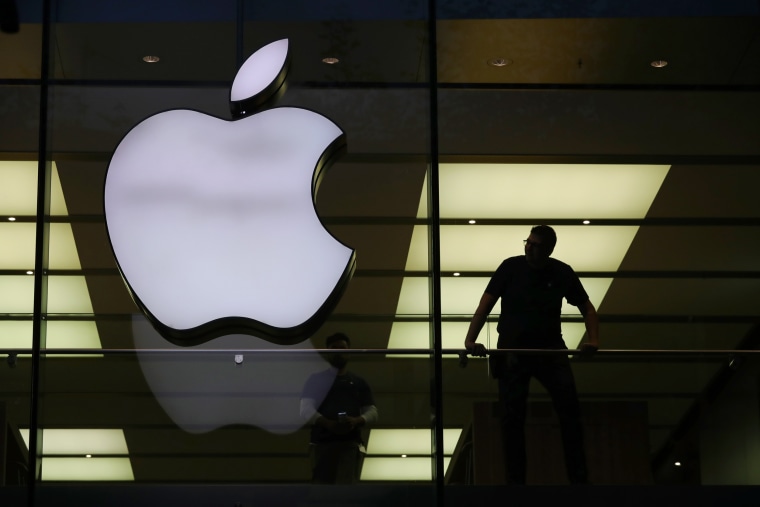On Thursday, 47 years after the NASDAQ began operations, the stock exchange became the home to the first-ever US company to be valued at more than $1 trillion: Apple Inc.
The tech giant became only the second company in the world ever to reach that symbolic milestone, the other being oil giant PetroChina (predictably based in China) which promptly went on to lose 80 percent of its value — a reminder that such symbolic moments do not necessarily represent permanent power or dominance.
However, the moment serves to remind us of the breadth of power we have allowed a few small companies to accumulate, and how little scrutiny they have enjoyed for the duration of it. While market capitalization shouldn’t be compared to GDP of countries, it’s still possible to compare the tech giants to countries in some ways: Their control over information, their revenues and their sheer scale in terms of users.
We heard the phrase “too big to fail” time and again during the banking crisis, in reference to institutions whose financial collapse would take down too much of the system with them if they weren’t financially bailed out by the government. And yet we have allowed the same thing to grow up again: While the collapse of any of the big four in tech wouldn’t necessarily cause financial contagion, they’d still have disastrous economic and social consequences.
Apple, though seemingly the company with the most traditional business model (they manufacture high-end phones, tablets and computers), also has huge control over information and expression. They do make the overwhelming majority of their revenue from device sales rather than from the sale or control of our personal data.
But, with an estimated 750 million people on its iOS operating system, its ecosystem shapes the online lives of more than one in 10 of the world’s population. It operates its own advertising network, and its own news application, which can drive huge traffic to whichever stories it chooses. And it takes a 30 percent cut of whichever apps it chooses to allow onto its network. It is a powerful, powerful company.
So are its near-rivals, and all of them have built their businesses on models that give them substantial advantage, too. Amazon is not only a huge retail empire, but also the host to thousands of small businesses, and a major provider of internet services. But it’s also a business built often to the resentment of mom-and-pop stores, who have often paid more in sales taxes and business rates than their online competition.
Facebook — which owns Instagram and WhatsApp too — reaches more than two billion people around the world, and the concerns that grow around its power hit the headlines every day. And, lest Google go unmentioned, it is, for most of us, the primary gateway to our online information.
Were any of these companies, who have enormous market advantage, to fail, the consequences would be both broad and deep. Facebook (and particularly WhatsApp) is now the cornerstone of communications for many people around the world. The absence of Google would disrupt the world’s information flow enormously (not to mention its business services). Were Amazon to disappear, thousands or millions of companies reliant on it would face crisis.
We have allows a concentration of power far beyond what would ever be sensible.
And, if these companies were countries, they would resemble North Korea more than a developed Western democracy. Their security teams place their staff under unprecedented security to defend their secrets and to prevent information which could provoke criticism leaking out. Journalists who produce coverage not to the bosses’ satisfaction are shut out.
And shareholders — the corporate equivalent of a legislature, or at least the electorate — are kept powerless versus founders and early investors, who dominate the voting power while reducing their stakes.
The excessively optimistic rhetoric of the tech giants, their slick PR and the years of uncritical coverage they have garners have let us sleepwalk into handing them control over the global information ecosystem beyond that of even the largest media conglomerate. They often built their way to that position through advantages in taxes, regulation or other competitive restrictions which often weren’t intended.
Had the internet’s often utopian founders been shown a vision of its future, they would surely not choose to end up here. But here we are: We have handed these companies power, and given ourselves few ways to hold it to account. As we hit these symbolic reminders of their size, profitability, and power, we should remember we still have the means and ways to hold them to check — our wallets and our laws — and we should get ready to use them.
James Ball is an award-winning journalist and author based in London. His journalism has appeared in the Guardian, the Washington Post, BuzzFeed, the Daily Beast and numerous other outlets.


